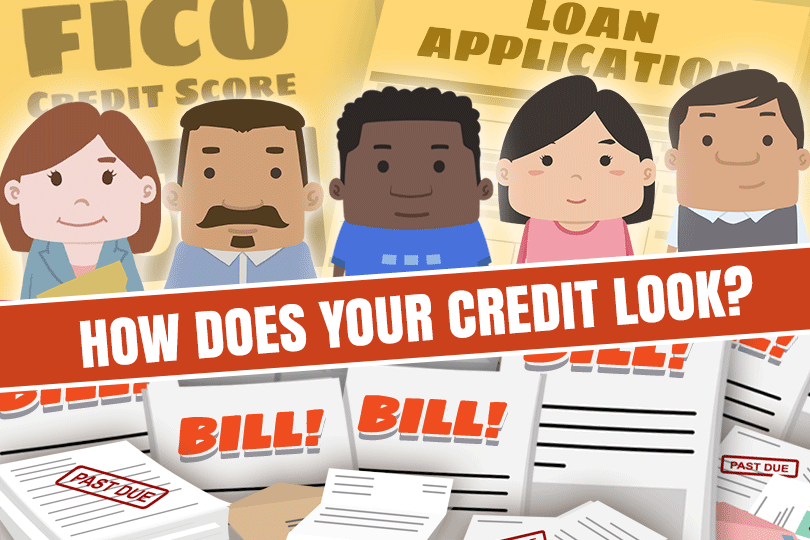First-Time Homebuyers and the FHA Loan Requirements
September 2, 2021
If you are a first-time home buyer interested in financing your home with an FHA loan, it is important you understand the guidelines, restrictions, and what it takes to get approved as an FHA borrower.
Credit Score and Down Payment Requirements
The FHA’s low credit score and down payment requirement is one of the main features appeals to first-time home buyers. The FHA requires a minimum credit score of 580 to be eligible for a minimum down payment of 3.5%, or as low as 500 if the borrower can afford to put down 10% on the home. However, it is important to remember that despite being insured by the FHA, individual FHA lenders may have “overlays” that require higher scores to qualify, in order to protect themselves even more.
Debt-to-Income Ratio
A feature that draws many first-time borrowers to FHA loans is that there is no income requirement. Instead, the FHA sets a maximum debt-to-income ratio to decide on whether borrowers are able to make their monthly payments. According to HUD Handbook 4000.1, FHA borrowers can have a “maximum qualifying ratio” 43%. The debt-to-income ratio is calculated by adding up the total mortgage payment for the new home, as well as any recurring monthly debt, which includes principal and interest, escrow deposits for taxes, hazard insurance, mortgage insurance premium, car loans, personal loans, student loans, credit cards, etc. That number divided by the borrower’s gross monthly income gives us the DTI ratio, which must fall under 43% to qualify.
Mortgage Insurance Premiums
The FHA requires a Mortgage Insurance Premium that helps to protect lenders from losses if and when borrowers are unable to repay their loans. There is also an Upfront Mortgage Insurance Premium (UFMIP) to be paid at closing that is typically 1.75% of the loan amount. The annual MIP cost depends on the length of the loan, the loan-to-value ratio, and when the loan was originated. This insurance helps the FHA continue to offer loans to first-time home buyers who are also high-risk, and it is important for those borrowers to know about the premium before being surprised by their first monthly payment.
FHA Limits for Borrowers
The FHA sets annual limits for the amount it will insure in home loans. The limits are based on county and property type, and the conventional loan limits set by Fannie Mae and Freddie Mac. The FHA loan limits are a deciding factor for many borrowers in whether they or not they apply for an FHA mortgage.
Eligible Property Types
In an effort to include more Americans in the housing market, FHA loans are available to finance various kinds of housing. The FHA offers Condo Loans, One-Time Construction Loans for new construction, and also Rehab Loans for fixer-uppers. They can be used to purchase single-family homes, multi-family homes with up to four units, and even manufactured homes on permanent foundations. The main rule to know is that any home purchased with an FHA loan must serve as the borrower’s primary residence. Investment properties are not eligible. There are exceptions for mixed-use properties, with at least 51% of the space dedicated to residence.
FHA loans can be a great option for many potential home buyers. If you are interested in applying for an FHA loan, talk to your loan officer to see if you meet all the requirements, and see if it is the best move for you!
------------------------------
RELATED VIDEOS:
FHA Loans Have Eligibility Requirements
The U.S. Government Backs Mortgages Through the FHA
Financed Properties Must Meet FHA Minimum Standards

FHA Loan Articles
November 26, 2024
Thinking about buying a home? One of the first things you'll want to consider doing is filling out forms to be pre-approved for your FHA mortgage. This means a lender takes a look at your finances to figure out how much they're willing to loan you. It's a smart move, but you might be wondering: "Will applying for pre-approval hurt my credit score?"
November 25, 2024FHA mortgages include a refinance option that allows you to pull equity from your home in cash. The FHA cash-out refinance loan allows the borrower to take the difference between what remains to be paid on the home and the amount of equity built up.
The FHA loan program has some competition in this area, but how do your other government-backed refinance loan options measure up?
November 21, 2024The dream of homeownership is with some from a young age. But in an uncertain housing market, some grapple with the question: Is buying a home the right move for me?
While renting offers relocation flexibility and lower upfront costs, homeownership provides a wealth of financial and personal benefits.
November 20, 2024Refinancing your mortgage offers a way to cash in on your home equity, potentially reduce your interest rate, or modify your loan term. Borrowers ready to consider have options including FHA loans and conventional loans.
While both provide avenues for refinancing, each loan type may be best for specific needs and financial circumstances. What are the differences between FHA and conventional refinance options?
November 14, 2024The home you want to buy might seem perfect, or it may have a few flaws that are acceptable in the grand scheme of things. But what about issues you can’t spot just by walking through the property a few times? A home inspection provides an unbiased, expert assessment of the property's condition, uncovering potential issues that might not be noticeable to the untrained observer.







